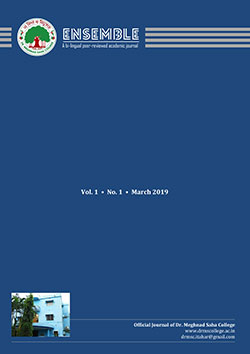The Spaces Of Myth In Kazuo Ishiguro’s The Remains Of The Day: Exploring The Intersections Of Memory And History
ABSTRACT:
Kazuo Ishiguro’s The Remains of the Day (1989) reconstructs the experiences of an ageing butler, Stevens, trapped within the confined space of the house he has served in for many years. The contours of memory are drawn along the spatial dimensions of the house which serve as a space of contestation between traditional values and emergent cultural beliefs in the post-war period. Physical modifications on the architecture produce continuities and alterations within the subject, who inhabits the space. This paper seeks to explore the dynamics of remembering and forgetting which are determined by the sites of memory and which trace historical changes as well as shifts in identity politics in Ishiguro’s novel. The paper critically assesses the idea of space, its functional dimension and mythic commemoration in relation to a symbolic historical past. It examines the development of subjectivity through the expansion of memory embodied in material form and the complex relationship between history and myth-making, which complicates individual identity. This paper further proposes that these spatio-temporal expressions can be understood as not only confined to the individual but may be extended to the domain of public memory and contextualized in a post-war British cultural politics of grief.
Keywords: Postmodern fiction, Sites of memory, Architecture, Post-war England, Historical revisionism, Myth-making
https://doi.org/10.37948/ensemble-2021-0202-a023
Views: 1848



